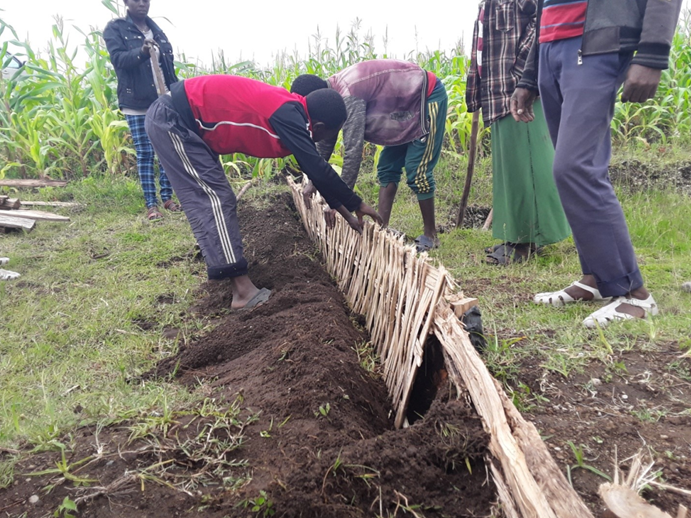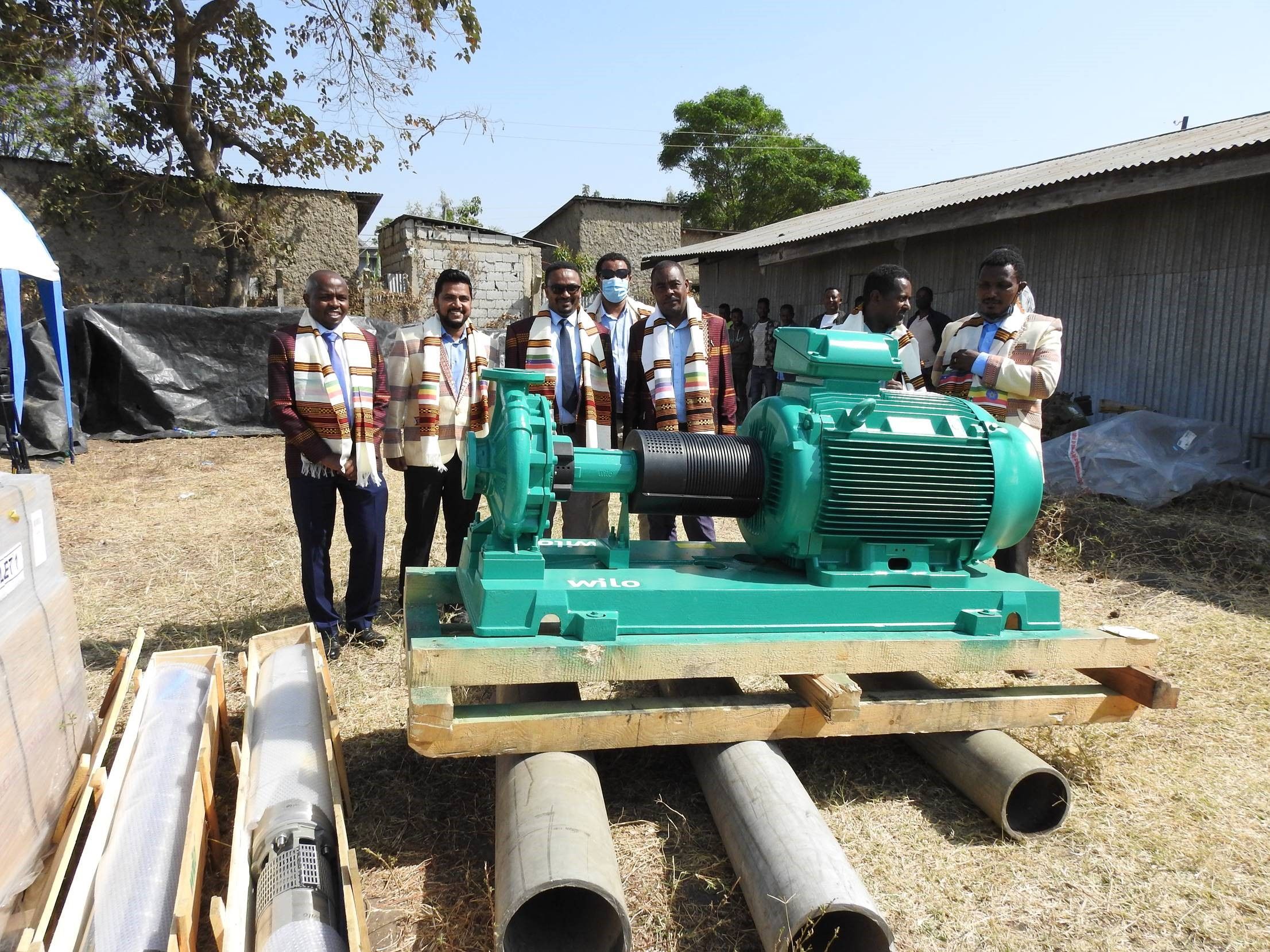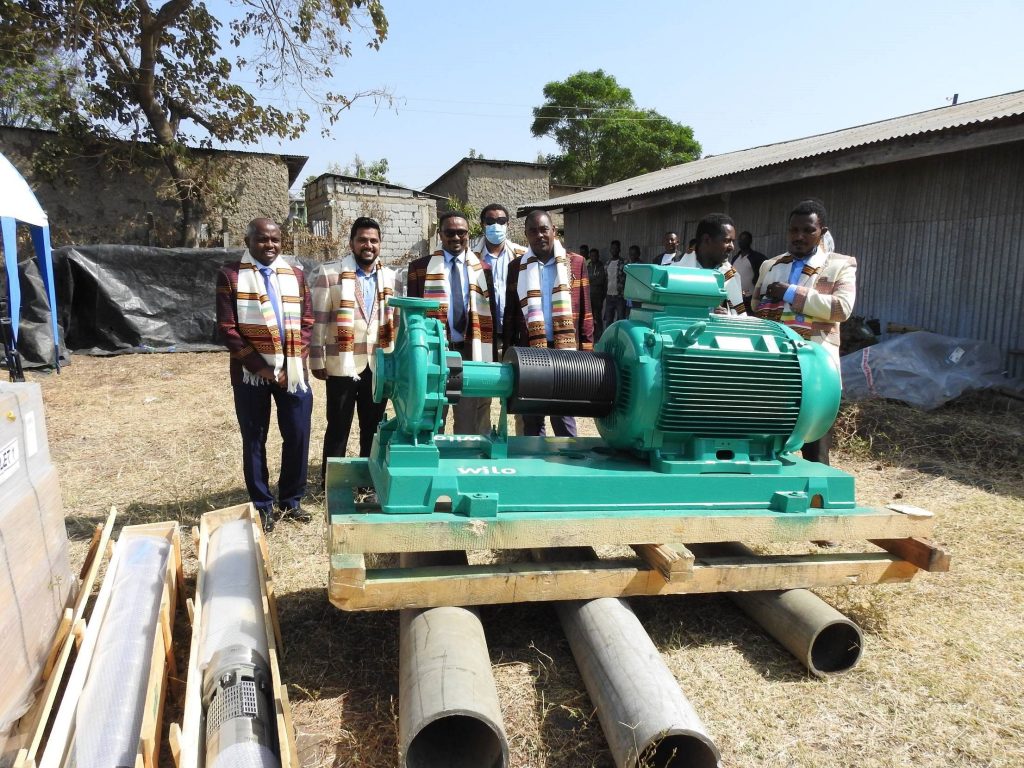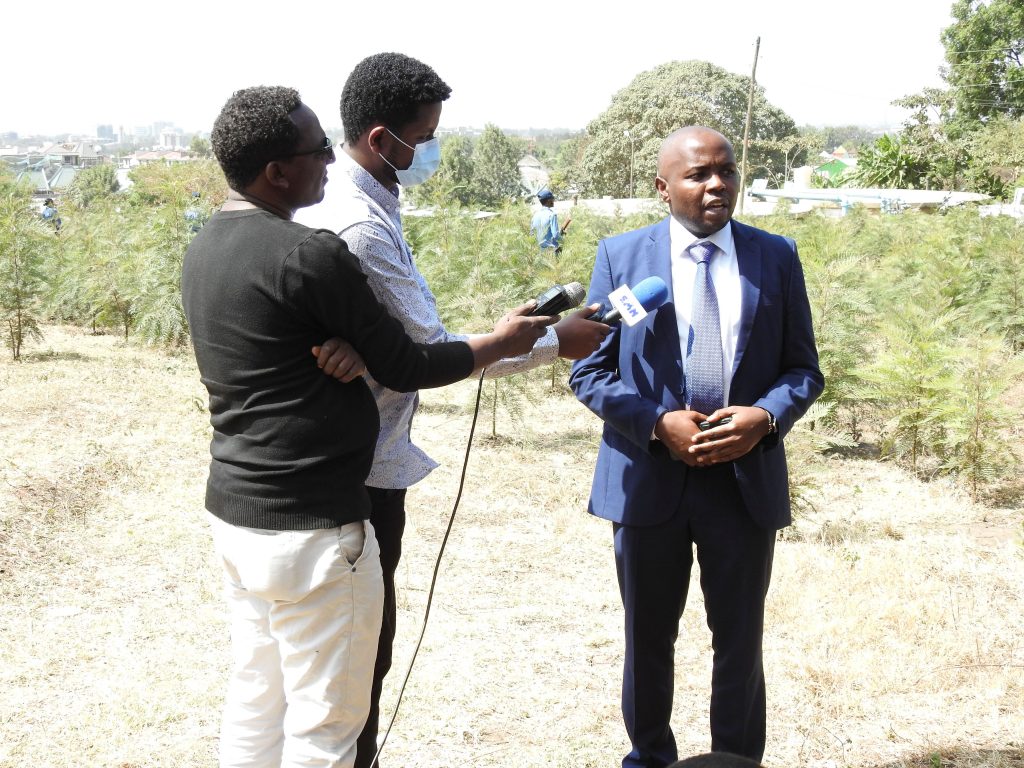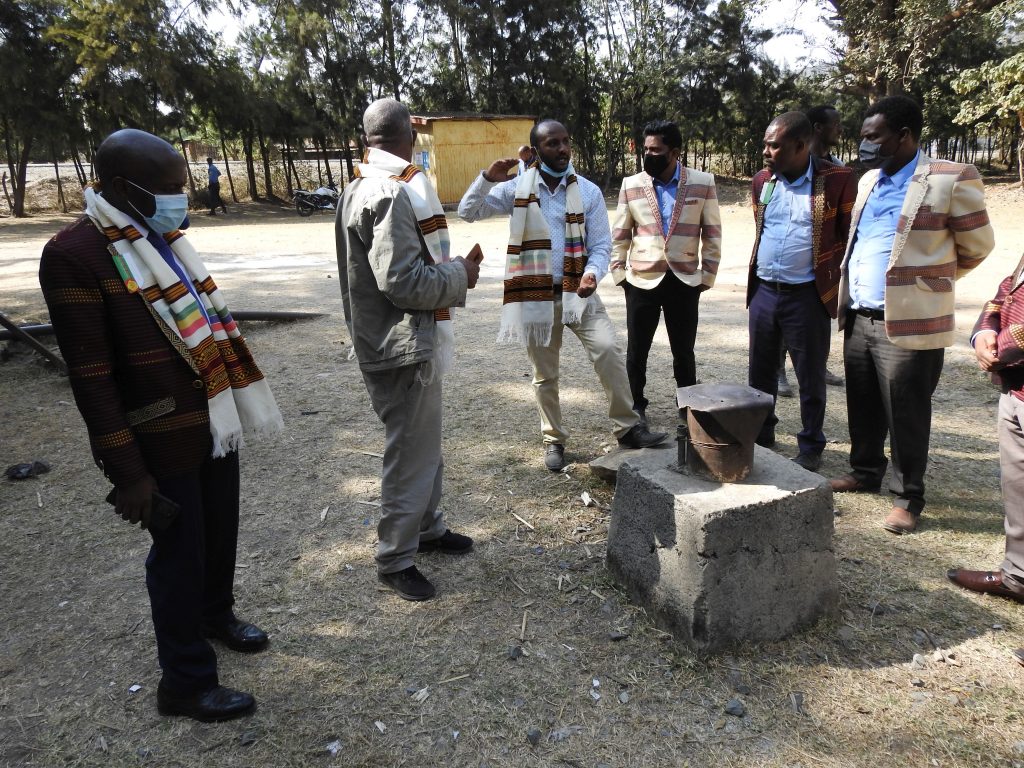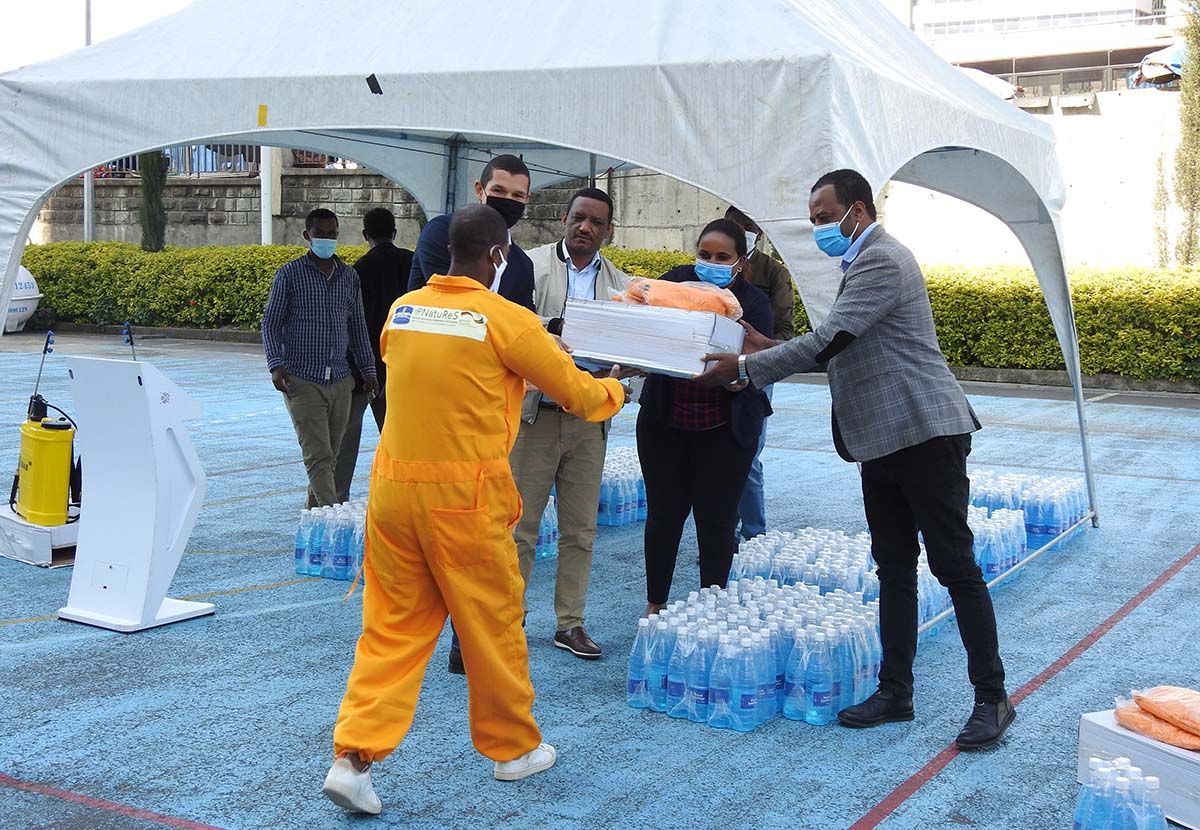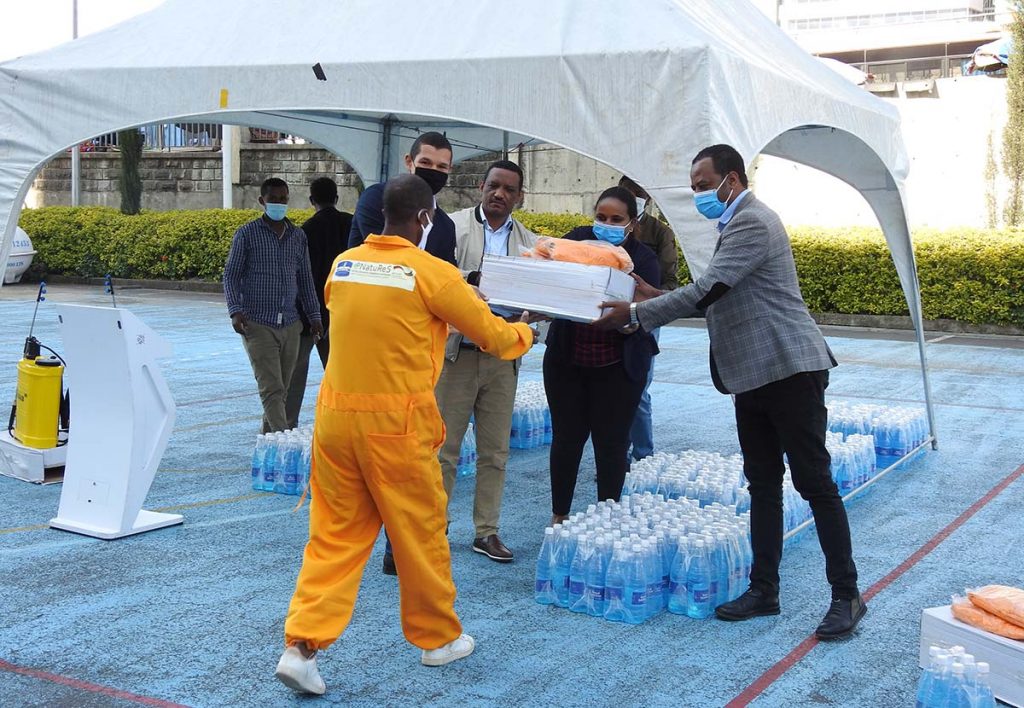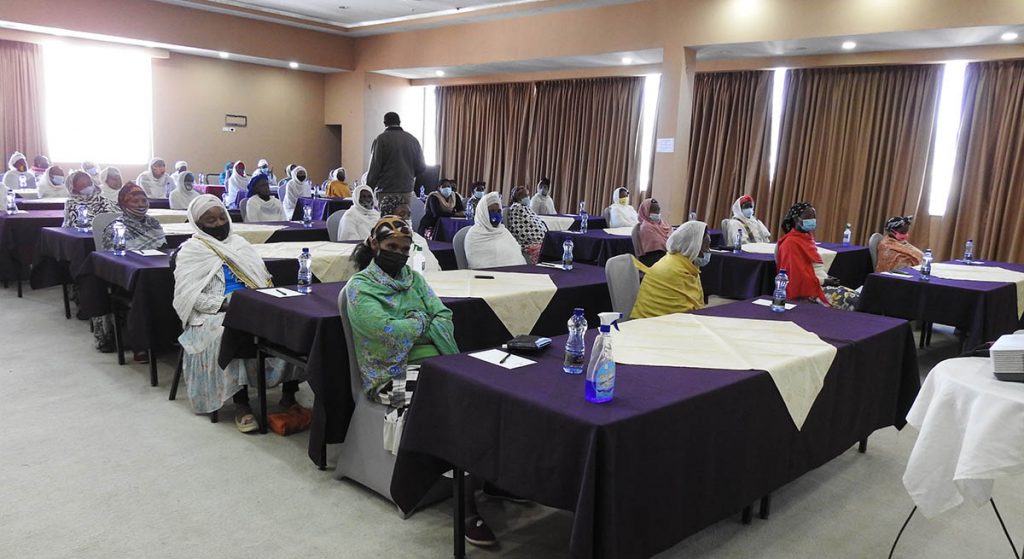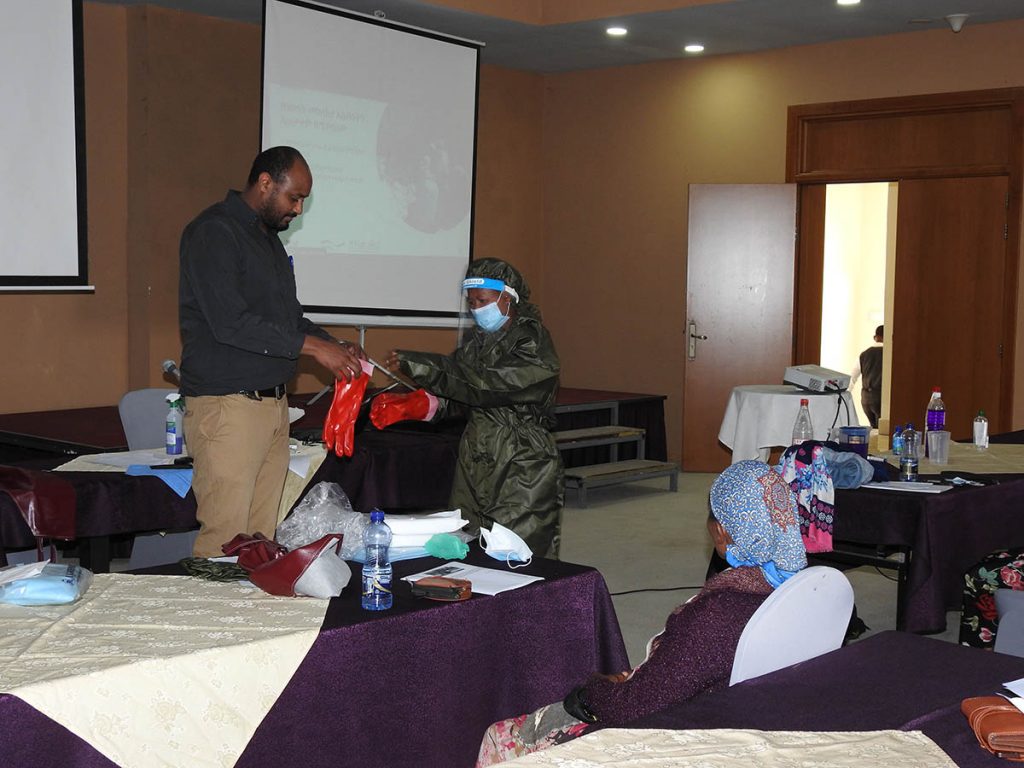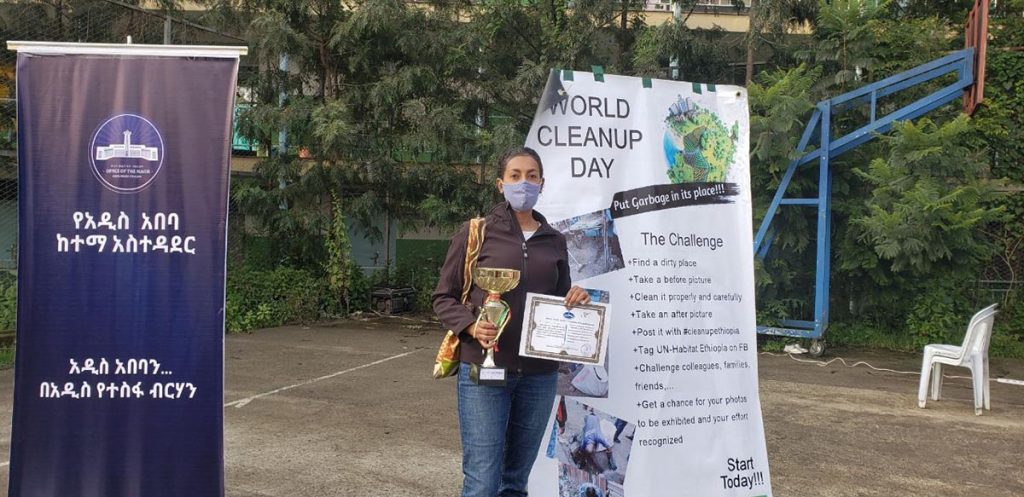Strengthening stewardship to protect Lake Hawassa
Natural Resources Stewardship requires the continuous engagement of stakeholders from all different walks of life. Since its establishment in 2018, Protecting Lake Hawassa Partnership (PLH) brings together stakeholders from the private, the public sector and civil society. PLH aims to safeguard Lake Hawassa’s ecosystem and to ensure sustainable economic growth in Hawassa City and its catchment.
In order to discuss PLH’s long-term strategic direction, monitor undertaken activities and evaluate the partnership’s progress, regular meetings are held. From 10 to 12 March 2021, all partners hence came together for the partnership’s bi-annual steering committee meeting. This represented also the quarterly taskforce meeting on Solid Waste Management and Afforestation and Soil Erosion Control (ASEC).
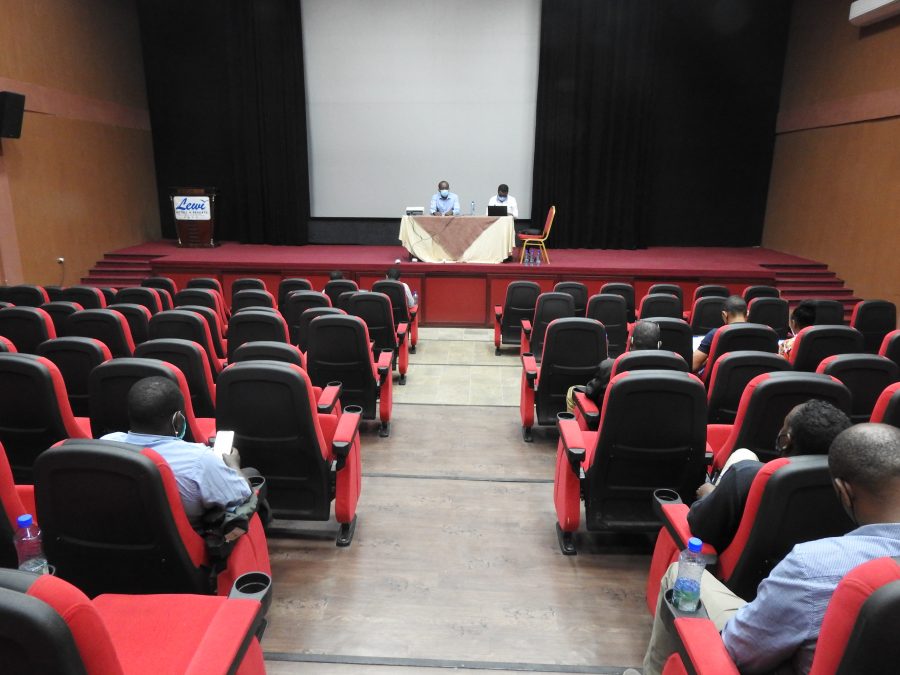
Copyright: NatuReS Ethiopia
During the meeting, Professor Mulugeta from Hawassa University gave an update on the ecohydrological approach to soil erosion control the partnership has embarked on. This approach, introduced by Hawassa University with the support of GIZ-NatuReS, aims to transform gullies back into productive land.
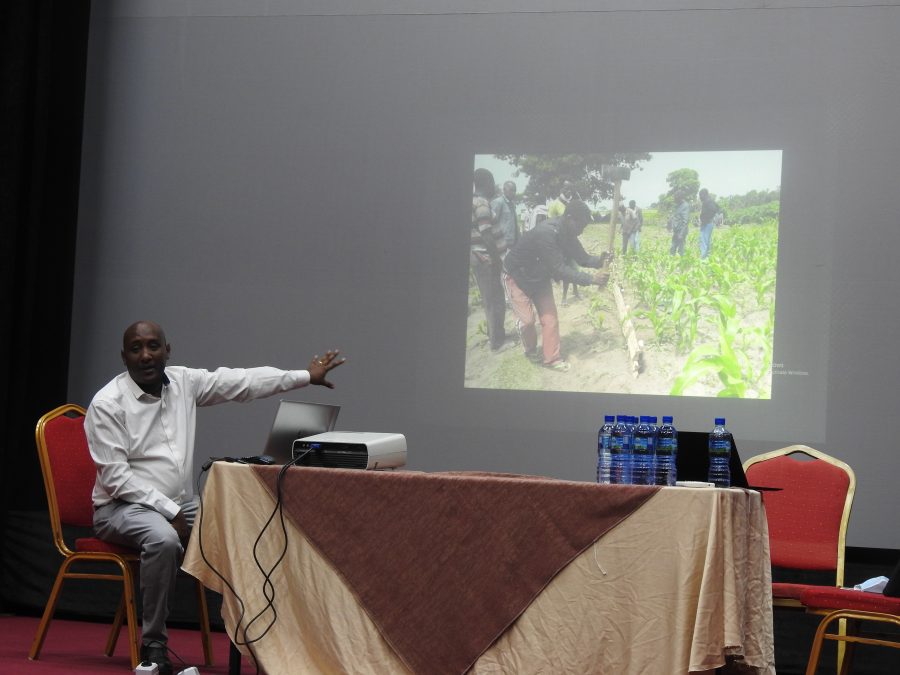
Copyright: NatuReS Ethiopia
The ecohydrological approach consists in using natural materials and slim structures for soil erosion control which do not impede farming practices. This makes it a preferable alternative to the conventional method of stone and iron gabions. The approach gained a lot of support from local farmers, many of whom are showing interest to apply similar interventions on their land. Learning from the good experience, the ecohydrological approach has also been adopted by a neighboring district.
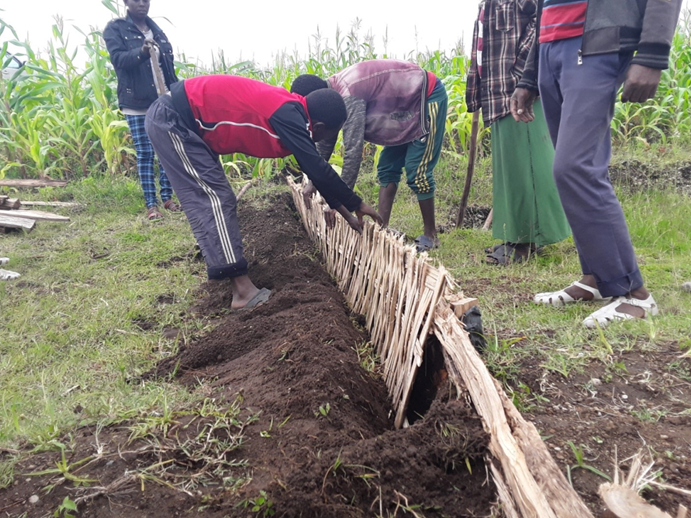
Copyright: NatuReS Ethiopia
The active participation of the task force members plays an important role in building a strong partnership. The meeting concluded with the participants’ agreement to further strengthen PLH through continued commitment, collaboration and communication.
